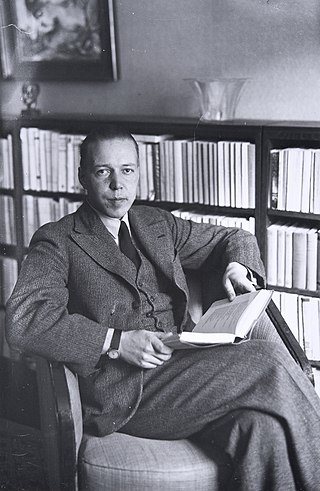
Mika Toimi Waltari was a Finnish writer, best known for his best-selling novel The Egyptian. He was extremely productive. Besides his novels he also wrote poetry, short stories, crime novels, plays, essays, travel stories, film scripts, and rhymed texts for comic strips by Asmo Alho.
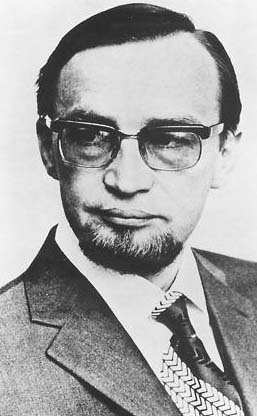
Paavo Juhani Haavikko was a Finnish poet, playwright, essayist and publisher, considered one of the country's most outstanding writers. He published more than 70 works, and his poems have been translated to 12 languages.
Sami Garam is a Finnish cook and writer of Hungarian descent.
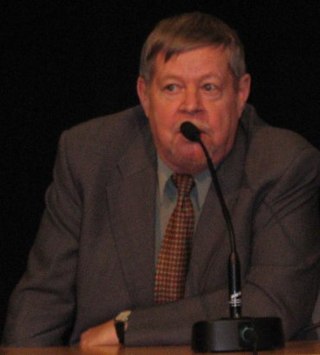
Arto Tapio Paasilinna was a Finnish writer, being a former journalist turned comic novelist. One of Finland's most successful novelists, he won a broad readership outside of Finland in a way few other Finnish authors have before. Translated into 27 languages, over seven million copies of his books have been sold worldwide, and he has been claimed as "instrumental in generating the current level of interest in books from Finland".
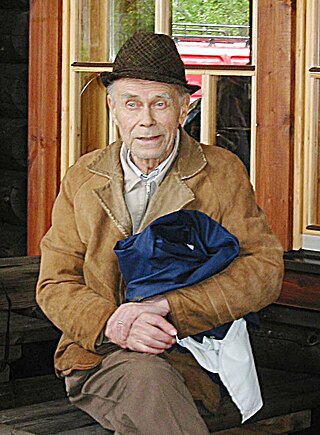
Veikko Huovinen was a Finnish novelist and forester. As a novelist, his writing was known for its realism, pacifism, sharp intellect, and peculiar humor. He wrote 37 books, and one of his best-known humorous novels is The Sheep Eaters from 1970. One of his books, the 1980 novel Dog Nail Clipper was adapted into a critically well-received 2004 film of the same name.

Kari Peter Conrad von Bagh was a Finnish film historian and director. Von Bagh worked as the head of the Finnish Film Archive. He was the editor-in-chief of Filmihullu magazine and co-founder and director of the Midnight Sun Film Festival. Since 2001, he had been the artistic director of the film festival Il Cinema Ritrovato in Bologna. Von Bagh was a member of the jury in the competition category of 2004 Cannes Film Festival.

Torsti Lehtinen was a Finnish writer and philosopher.

Uuno Kailas, born Frans Uno Salonen was a Finnish poet, writer, and translator. Together with Kaarlo Sarkia, Kailas was the most prominent Finnish poet of the 1930s.

Matti Yrjänä Joensuu was a Finnish writer of crime fiction. He has been awarded the State's Literature Prize (1982), Vuoden johtolanka prize, and he has been nominated for two Finlandias. He received the Martin Beck Award in 1987.

Kari Hotakainen is a Finnish writer. Hotakainen started his writing career as a reporter in Pori. In 1986, he moved to Helsinki. He became a full-time writer in 1996. He has two children with his wife, sound technician Tarja Laaksonen, whom he married in 1983. He has also worked as a copywriter and as a columnist for the Helsingin Sanomat.

Pirkko Helena Saisio is a Finnish author, actress and director. She has also written under the pen names Jukka Larsson and Eva Wein. Saisio has a broad literary output, dealing with many kinds of texts from film screenplays all the way to librettos for the ballet. Her novel Betoniyö (1981) was adapted into a feature film Concrete Night in 2013 by Pirjo Honkasalo.

Martti Henrikki Haavio was a Finnish poet, folklorist and mythologist, writing poetry under the pen name P. Mustapää. He was born on 22 January 1899 in Temmes, and died on 4 February 1973 in Helsinki. He was also a professor of folklore and an influential researcher of Finnish mythology. In 1960, Haavio married Aale Tynni, after his first wife Elsa Enäjärvi-Haavio died in 1951 of cancer. His daughter, Elina Haavio-Mannila, is a social scientist. During Haavio's early career, he was a member of the Tulenkantajat literature club.

Arvo Albin Turtiainen was a Finnish writer and translator.

Tuuve Aro is a Finnish author, who was born and lives in Helsinki. Alongside her work as a writer, she has worked as a film critic and has also done some film producing. Her first book appeared in 1999, and she has published a total of eleven fiction books, six of which are short story collections, three novels and two children's novels. Her debut novel Karmiina (2004) and collection of short stories have been translated into German.
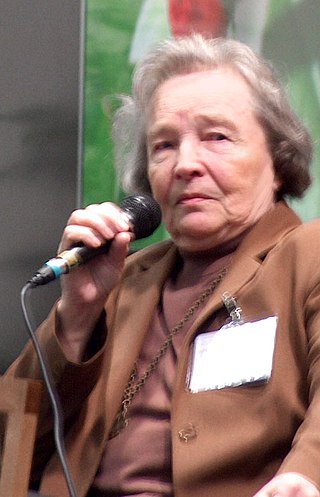
Eeva Karin Kilpi is a Finnish writer and feminist. Better known abroad than in Finland, her poetry, characterized as feminist humor, was discovered in the 1980s in Europe.

Anna Taina Aleksandra Kortelainen is a Finnish scholar, art historian and non-fiction writer.

Rauha S. Virtanen was a Finnish author who wrote youth literature as well as plays. Virtanen received numerous literary awards, including the Topelius Prize in 1971, the State Prize for Youth Literature in 1971, and the Tirlittan Prize of the Finnish Writers' Union in 2003.
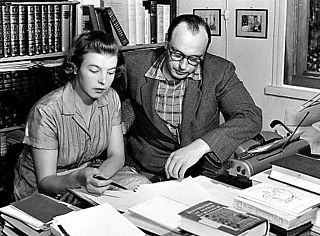
Ruth Helena Anhava was a prolific Finnish poet, author and translator. Her translations include novels, plays, lyrics and dozens of auditions.
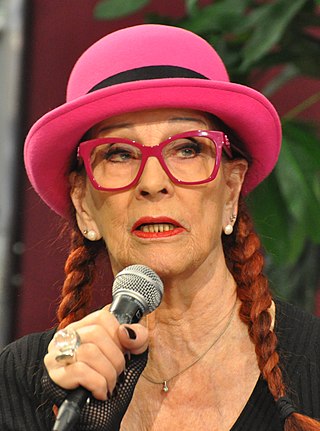
Aira Laila Suvio-Samulin was a Finnish dance teacher and businesswoman.
Heikki Oja is a Finnish docent of astronomy, Doctor of Philosophy and the former director of the almanac office of the University of Helsinki.

















